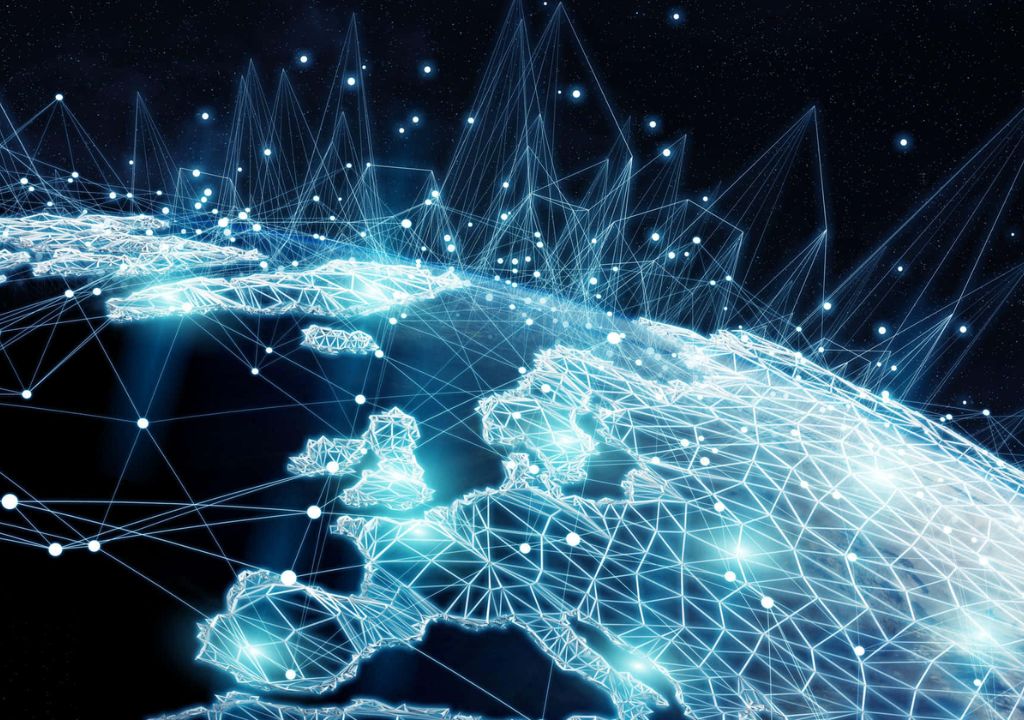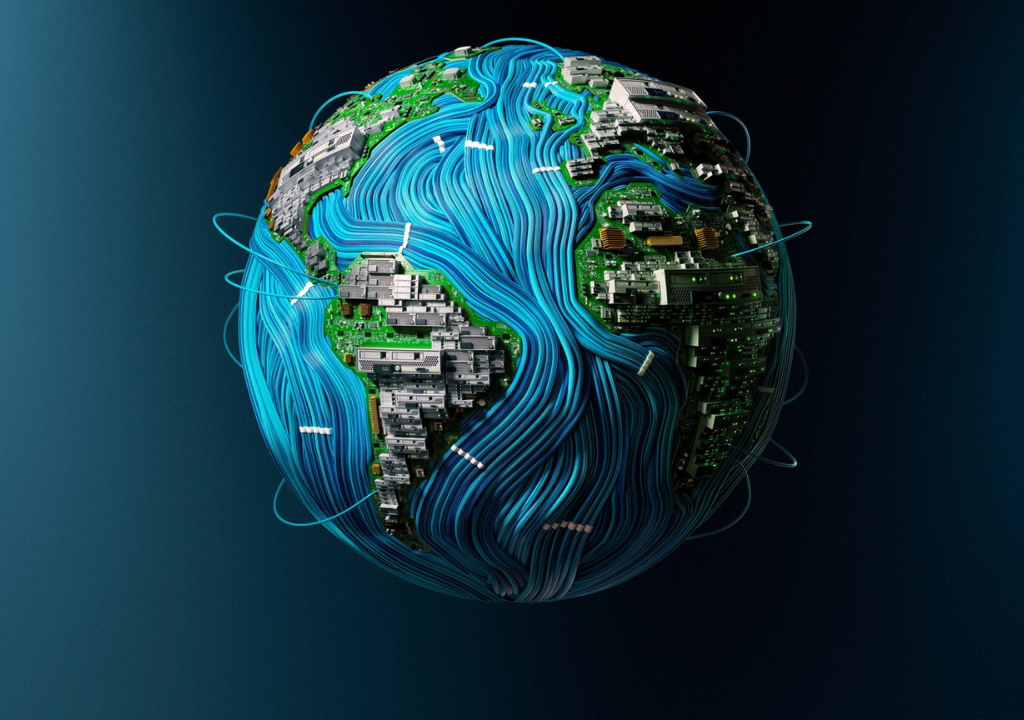In the tapestry of human progress, technology stands as the most vibrant and transformative thread. Which Kind Of Technology On The World weaving together the fabric of our modern existence. This from the ancient to quantum computers, technology they are encompasses an awe-inspiring spectrum of innovation.
But what exactly constitutes the different kinds of technology that shape our world today? As we delve into the vast realm of technological advancements, we discover a panorama of fields—each with its unique potential to revolutionize how we live, work, and connect.
Join me on a journey through the myriad facets of technology they are exploring everything from the microscopic marvels of nanotechnology to the expansive possibilities of space exploration.
The Rise of Artificial Intelligence
The rise of artificial intelligence (AI) has revolutionized numerous industries, transforming the way we live and work. With advancements in machine learning, neural networks, and natural language processing, AI systems are now capable of performing complex tasks with remarkable efficiency and accuracy.
From autonomous vehicles and predictive analytics to personalized recommendations and smart home devices, AI’s integration into everyday applications is reshaping economies and societies.
The ethical considerations and potential impacts on employment and privacy are also critical areas of discussion as we navigate this technological evolution. As AI continues to advance, its role in driving innovation and solving global challenges becomes increasingly significant.
The Evolution of Machine Learning Algorithms
The evolution of machine learning algorithms has dramatically transformed the landscape of artificial intelligence, reflecting a remarkable progression from basic linear models to sophisticated deep learning architectures.
Initially rooted in simple regression techniques and decision trees, the field has expanded to encompass complex neural networks, reinforcement learning, and ensemble methods.
This advancement has been driven by breakthroughs in computational power, data availability, and algorithmic innovations, enabling more accurate predictions and smarter, more adaptable systems.
As we continue to explore novel techniques and applications, the evolution of these algorithms promises to unlock even greater potential across diverse domains, from natural language processing to autonomous systems.
The Impact of AI on Modern Industries
The advent of artificial intelligence (AI) is revolutionizing modern industries by enhancing operational efficiency and driving innovation. AI technologies, such as machine learning, natural language processing, and predictive analytics, are transforming sectors from manufacturing to finance, healthcare, and beyond.
Businesses are leveraging AI to automate complex tasks, optimize supply chains, and gain deeper insights from vast data sets, leading to more informed decision-making and personalized customer experiences.
This technological evolution is not only reshaping traditional business models but also creating new market opportunities and driving competitive advantage in a rapidly changing global landscape.
Ethical Considerations in AI Development
Ethical considerations in AI development are paramount to ensuring technology advances responsibly and equitably. Addressing concerns such as algorithmic bias, data privacy, and the potential for job displacement requires a commitment to creating transparent, fair, and accountable AI systems.
By integrating ethical frameworks and fostering interdisciplinary collaboration, developers can mitigate risks and promote a future where artificial intelligence not only enhances efficiency but also upholds fundamental human values.
Balancing innovation with ethical stewardship is crucial to harnessing AI’s transformative power while safeguarding societal well-being.
Renewable Energy Technologies

Ethical considerations in AI development are paramount to ensuring technology advances responsibly and equitably. Addressing concerns such as algorithmic bias, data privacy, and the potential for job displacement requires a commitment to creating transparent, fair, and accountable AI systems.
By integrating ethical frameworks and fostering interdisciplinary collaboration, developers can mitigate risks and promote a future where artificial intelligence not only enhances efficiency but also upholds fundamental human values.
Balancing innovation with ethical stewardship is crucial to harnessing AI’s transformative power while safeguarding societal well-being.
Biotechnology Breakthroughs
In recent years, biotechnology breakthroughs have dramatically transformed the landscape of medical science, paving the way for revolutionary treatments and therapies. Advances in gene editing technologies like CRISPR have enabled precise modifications to the DNA, offering potential cures for genetic disorders and chronic diseases.
Additionally, innovations in synthetic biology are driving the creation of novel bioengineered organisms and materials with applications spanning from sustainable agriculture to advanced drug delivery systems.
These pioneering achievements not only hold promise for enhancing human health but also underscore the rapid evolution of biotechnological research and its far-reaching impact across various sectors.
The Internet of Things
The Internet of Things (IoT) represents a transformative leap in technology, seamlessly interconnecting everyday devices through smart networks to enhance automation and data exchange.
By leveraging advanced sensors and cloud computing, IoT enables intelligent systems to collect and analyze real-time data, optimizing efficiency across various domains such as smart homes, healthcare, and industrial automation.
This interconnected ecosystem not only drives innovation but also fosters improved decision-making and resource management, setting the stage for a more responsive and interconnected future.
Quantum Computing
Quantum computing represents a revolutionary leap in computational technology, harnessing the principles of quantum mechanics to solve complex problems beyond the reach of classical computers.
By utilizing qubits and superposition, quantum computers can process vast amounts of data simultaneously, making them ideal for applications in cryptography, material science, and artificial intelligence.
As this cutting-edge technology advances, it promises to accelerate breakthroughs in various fields, redefining computational limits and unlocking new possibilities for innovation and problem-solving.
Enabling the Next Generation of Connectivity

Enabling the next generation of connectivity involves harnessing cutting-edge technologies to revolutionize how we interact with the digital world.
This advancement is driven by the integration of 5G networks, the Internet of Things (IoT), and smart infrastructure, all of which promise to enhance data transfer speeds, improve network reliability, and foster innovative applications.
By adopting these advancements, businesses and consumers alike can experience a new era of seamless communication, transformative automation, and unparalleled connectivity. This progressive shift not only supports the growth of smart cities and advanced industries but also paves the way for groundbreaking solutions in various fields, from healthcare to transportation.
5G Networks
5G networks represent a revolutionary leap in telecommunications, offering unprecedented speed, ultra-low latency, and massive connectivity compared to previous generations.
This advanced technology leverages sophisticated beamforming and network slicing to enhance mobile broadband experiences, support the burgeoning Internet of Things (IoT), and drive innovations in smart cities and autonomous vehicles.
By integrating advanced 5G architecture, including millimeter-wave spectrum and dense small cell deployments, 5G networks promise to unlock new possibilities for real-time applications, enhanced user experiences, and transformative business models across diverse sectors.
Space Exploration Technologies
Space exploration technologies have revolutionized our understanding of the cosmos, driving advancements in aerospace engineering and satellite systems.
Innovations in propulsion methods, such as ion thrusters and reusable rockets, are pushing the boundaries of interstellar travel and reducing mission costs. The development of cutting-edge robotics and AI is enhancing our ability to explore distant planets and asteroids, while improvements in communication technologies ensure seamless data transfer across vast distances.
These breakthroughs not only pave the way for future space missions but also stimulate growth in related sectors, demonstrating the far-reaching impact of space exploration on modern technology.
Conclusion
In conclusion, the diverse array of technologies shaping our world today—from the burgeoning field of artificial intelligence to the innovative advancements in space exploration—illustrates the profound impact of technological evolution on our lives. Each technological frontier, whether it’s the transformative power of quantum computing or the sweeping changes brought about by 5G networks, offers unique opportunities and challenges. As we navigate this rapidly evolving landscape, balancing innovation with ethical considerations and sustainable practices will be crucial. Embracing these technological advancements responsibly ensures that we harness their full potential while fostering a future of progress and well-being.
FAQ’ s
What is the current technology in the world?
The world is currently embracing a blend of transformative technologies such as quantum computing, AI-driven automation, advanced biotech, and 5G connectivity. These innovations are reshaping industries and daily life.
Which technology is best in the world?
The “best” technology is subjective and varies based on criteria like impact or utility. However, artificial intelligence (AI) stands out due to its versatility and transformative potential across various fields, from healthcare to finance.
What is the most famous technology in the world?
Smartphones are arguably the most famous technology worldwide, revolutionizing communication, information access, and daily convenience with their omnipresence and multifunctionality.
Which country is No. 1 in technology?
The United States is often regarded as the leader in technology, thanks to its dominance in tech innovation, influential companies, and research institutions. However, countries like China and South Korea also have significant technological advancements.
What are 5 technologies we use every day?
Smartphones
Wi-Fi
GPS
Cloud computing
Streaming services
These technologies are integral to modern life, providing connectivity, navigation, and access to information and entertainment.
